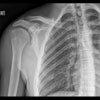Dear Imaging Informatics Insider,
When it comes to billing for MRI scans, it's important to get the billing codes right. Artificial intelligence (AI) may prove to be a useful tool in avoiding the costly errors that occur during manual entry of billing codes.
At the recent annual meeting of the International Society for Magnetic Resonance in Medicine in Paris, researchers shared how a machine-learning algorithm can predict -- with over 97% accuracy -- the correct billing codes from an MRI exam based just on reviewing the study's log data. Click here to learn more.
In other news, researchers from Imperial College London analyzed two RIS/PACS networks and found that a significant percentage of reporting time for chest x-rays was spent on tasks not directly related to image interpretation. They concluded that optimizing RIS/PACS technology with an emphasis on efficient radiology reporting could help deal with the plain-film reporting backlogs in the U.K. Click here for all the details.
German researchers found an AI algorithm could accurately differentiate between benign and malignant breast lesions found on breast conebeam CT studies. The machine-learning method could potentially improve the real-world performance of radiologists reading these exams. Click here for our report.
The U.K. Royal College of Radiologists has developed detailed guidance on the technical requirements for radiologists and industry to facilitate and improve connectivity and also simplify submission of anonymized, annotated cases between a PACS and a separate digital archive. What do they recommend? Click here to find out.
It's no secret that many types of AI algorithms are being developed and assessed for use in a variety of applications in radiology. In a new column for AuntMinnieEurope.com, Dr. Neelam Dugar reviews some important types of algorithms for radiology and shares her perspective on key issues affecting clinical implementation. You can access it by clicking here.
If you have any tips or suggestions for topics you'd like to see covered in the Imaging Informatics Community, please feel free to drop me a line.



















